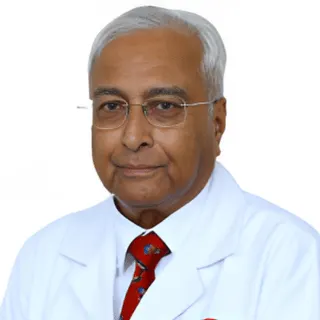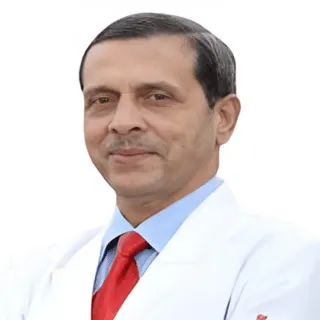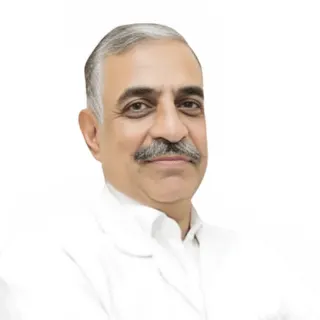Best Orthopedic Surgeons in Artemis Hospital Gurgaon
 17 December,2025
Read More
17 December,2025
Read More
Starting From: USD 2000-20000
Hospitalization Days: - Days
Procedure Duration: - Hrs
Intra Vascular Foreign Body Removal is affordable in India. The cost of Intra Vascular Foreign Body Removal in India lies between USD 2000-20000. The exact procedure price depends on multiple factors such as the surgeon's experience, type of hospital, severity of the condition, patient's general condition,�etc.
Intra-vascular foreign body removal is a crucial medical procedure to extract objects or materials inadvertently introduced into blood vessels. Typically performed by interventional radiologists or vascular surgeons, this procedure utilizes advanced imaging techniques such as fluoroscopy or ultrasound to guide the removal process. Foreign bodies like broken catheter fragments, embolization coils, or retained guide wires pose significant risks including vessel perforation, thrombosis, or embolism if left untreated. The removal procedure involves meticulous manipulation of specialized instruments like retrieval snares, forceps, or balloons to extract the foreign object while minimizing vascular damage safely. Timely intervention is essential to prevent complications and ensure patient safety.
Intra-vascular foreign body removal becomes necessary when foreign objects or materials unintentionally enter the bloodstream, posing risks such as vessel occlusion, embolization, or infection. Reasons for needing this procedure include:
Intra-vascular foreign body removal encompasses various techniques tailored to the specific characteristics of the foreign body and its location within the vascular system. Here are the types of intra-vascular foreign body removal:
Patients are selected for intravascular foreign body removal based on various factors, including the type and location of the foreign body, the presence of symptoms or complications, and the patient's overall health and treatment goals. Here's how patients are typically selected for the procedure:
Intra-vascular foreign body removal offers both risks and benefits that must be carefully considered before proceeding with the procedure:
After intravascular foreign body removal, patients can expect a period of recovery and monitoring to ensure optimal healing and detect potential complications. Here's what to expect after the procedure:
Intra-vascular foreign body removal is performed using specialized techniques tailored to the foreign body's type, size, location, and characteristics. Here's an overview of how the procedure is typically performed:

Director
Cardiothoracic and Vascular Surgeon
Medica Superspecialty Hospital, Kolkata

Director
Cardiothoracic and Vascular Surgeon
Fortis Escorts Heart Institute, New Delhi

Senior Consultant
Cardiothoracic and Vascular Surgeon
Apollo Hospital Chennai, Greams Road

Chairman
Cardiothoracic and Vascular Surgeon
Medanta - The Medicity Hospital, Gurgaon


Head of Department (HOD)
Cardiothoracic and Vascular Surgeon
Manipal Hospital Formerly Columbia Asia, Palam Vihar, Gurgaon
Doctor of Pharmacy
Dr. Deepanshu Siwach is a skilled clinical pharmacist with a Doctor of Pharmacy degree.?He has 4+?years of experience and has worked with thousands of patients. He has been associated with some of the top hospitals, such as Artemis Gurgaon.
Dr. Deepanshu Siwach is a skilled clinical pharmacist with a Doctor of Pharmacy degree.?He has 4+?years of experience and has worked with thousands of patients. He has been associated with some of the top hospitals, such as Artemis Gurgaon....
The duration of intravascular foreign body removal varies depending on factors such as the type, size, and location of the foreign body, the complexity of the procedure, and any associated complications. Generally, the procedure can take anywhere from 30 minutes to a few hours to complete.
The success rate of intravascular foreign body removal varies based on factors such as the type, size, and location of the foreign body and the technique used for removal. Generally, success rates are high, ranging from 70% to over 90%, with significant symptom relief and complication prevention observed in most cases.
The time it takes to return to normal activities after intravascular foreign body removal varies among individuals and depends on factors such as the extent of the procedure, the type of foreign body removed, and individual recovery speed. Generally, patients can resume normal activities within a few days to a week post-procedure.
The effects of intravascular foreign body removal typically last long, with successful removal preventing complications and improving symptoms. While occasional follow-up evaluations may be necessary, the benefits of the removal procedure are generally durable over time, providing sustained relief and preventing adverse events.
After intravascular foreign body removal, lifestyle changes may include avoiding activities that could lead to re-injury or introducing new foreign bodies into the bloodstream. Maintaining overall vascular health through regular exercise, a balanced diet, smoking cessation, and adherence to prescribed medications may also be recommended.
Alternative treatments for intravascular foreign body removal depend on factors such as the type and location of the foreign body, as well as the associated symptoms or complications. Sometimes, observation without intervention or medical management to address symptoms or prevent complications may be considered an alternative to removal.
The Art of Effective Communication
 17 December,2025
Read More
17 December,2025
Read More
 16 December,2025
Read More
16 December,2025
Read More
 10 December,2025
Read More
10 December,2025
Read More
 09 December,2025
Read More
09 December,2025
Read More
 05 December,2025
Read More
05 December,2025
Read More
 04 December,2025
Read More
04 December,2025
Read More